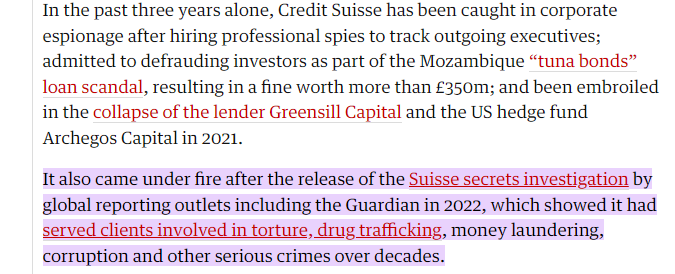My two cents on current bank crisis and it’s impact on Intellect.
Lately, Bank and crisis become synonymous (once again). It started with SVB Bank, which suffered losses from holding government bonds. Someone has covered this in detail this blog, thanks to @VFM (the SVB collapses explanation is better than what economist has written IMO)
As per Nouriel Roubini, US Banks are sitting on $620 billion of unrealised losses with $2.2 trillion of combined equity. This is a staggering amount, which means they are starting at losses of more than 25% on the equity, which is supposed to be the safest. Agree not all losses will be realised if the banks hold these securities until maturities. The bond maturities can be one year to 30 years. I am sure Bank would not have parked much money in long-duration bonds of 30 years, but I think Banks would have parked a decent(most) amount on 1-year or short-term bonds. A lot of these losses that are unrealised now may not incur if banks hold them until maturity.
Nevertheless, the unrealised losses are staggering, and the situation is not getting better any time soon as there is an expectation that the US interest rate will rise further in the next few months, with many believing that there won’t be an interest rate cut in 2023. This means that banks will have unsettling time for the next few months. Few of banks may prefer to book partial losses now rather than waiting at a later time as investors become unsettled with the prospect of further capital raising from banks. This means cash has become very valuable in this difficult time for banks, and they will only cut down on their expenses unless they are essential. Buying an upfront product license could be one of the causality of this delayed decision-making.
The European situation is slightly different, but Credit Suisse(CS) is making the situation unnerving for the financial market. [Lately, it was involved in one crisis after another.]. (Crooks, kleptocrats and crises: a timeline of Credit Suisse scandals | Credit Suisse | The Guardian). This is prior to the current accounting issues they are going through.

During a financial crisis, the weakest always get the most impacted and the strongest become even stronger. Although CS received emergency funding, it will be interesting to see how long it can keep itself away from further crises. European banks will also be facing a situation similar to what their counterpart in the US is facing, maybe to a lesser extent, as ECB rates have not increased. However, many of the European banks are also operating in the US, meaning they would have exposure to the US bond market and staring at billions of unrealised losses.
The US and Europe’s financial market situation won’t help Intellect. Mr Arun Jain had an ET interview yesterday, and I found it very interesting.
https://www.youtube.com/embed/zys8AAAiNHA
The anchors were interested in knowing the outlook and its impact on BFSI, but Mr Jain was marketing the Intellect AI tool and sidelines the question of impact. He was like a classic politician who says what he wants, irrespective of what the anchor (TV) asks.
If the financial situation is in turmoil, the banks would be keen to focus on their cash and cash reserve to preserve their cash, even if it is safe. This means they will delay the capex decision on purchasing IT software even if it is strategic to their vision. Banks can easily wait for a few months until the situation subsides. Companies like Temenos/Intellect are likely to suffer delayed decision-making, particularly selling on premised license products. Unfortunately, few win or losses define their quarter, as most of the license revenue flow to PAT. Due to the nature of the IT product business, a lot of deals are signed towards the end of the quarter. Due to this, Intellect is likely to have lower license revenue and lower PAT in Q4 and may be in Q1. Teminos has been suffering massive headwinds (CEO/COO/CFO, they are all gone in the last few months) due to lower take from banking clients, and this is before the current crisis.
A few clients might prefer to go on the subscription path for the Intellect cloud business, but it is unlikely to make any dent in immediate quarters as subscriptions take 3 to 4 years to really become profitable.
Banks will be very careful about buying licenses/subscriptions from fintech as they are facing their own challenges due to the drying up of funding. Bank will make sure that the product/subscription they are buying from will be in the market for years to come and will not disappear due to lack of funding. Even if the Fin tech product is good, banks are interested in the long-term nature of the product and will be keen to buy products from companies with solid balance sheets.
When Covid started, Intellect was breaking even, but in the two or three years, it has shown profitable growth with the balance sheet getting stronger without any external funding or debt. What could have been their weakness a few years back is turning out to be their advantage.
To summarise, there will be short-term headwinds for Intellect, but the current situation will help them in the medium to long term IMO.
Note: Long time invested
| Subscribe To Our Free Newsletter |

